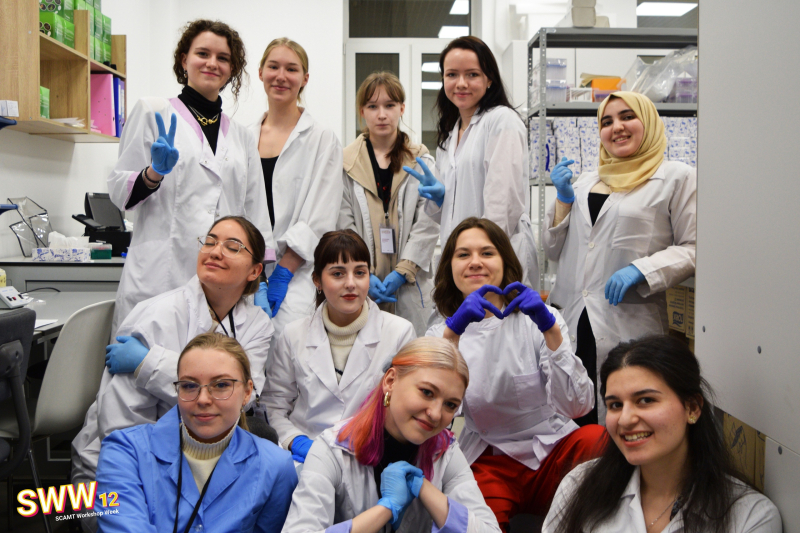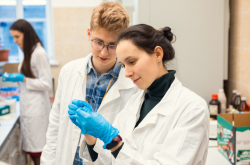For seven years, ITMO’s ChemBio Cluster has been organizing the bi-annual SCAMT Workshop Week (SWW). During the school, participants attend workshops and lectures, work on their research, learn about the promising fields within nanotechnologies, improve their soft skills, and engage in networking. Students enjoy access to world-class equipment they might not have had during their studies.
Moreover, students can continue their academic paths at ITMO even as school graduates by doing an internship at ITMO’s SCAMT Institute and finalizing their project in a research paper or investment proposal. For SWW participants, there is also an opportunity to enter ITMO’s Master’s programs without exams.
The school is held twice a year; starting from the 10th season, the participants now implement projects within three tracks: experimental (lab work), industrial (applied solutions), and digital (solutions at the intersection of IT, biology, and chemistry). The summer workshop week is held in English, welcoming participants from all over the world. In the last three years, each Russian-language workshop has received at least 350 applications, and each English-language workshop – at least 170. Overall, 545 students have taken part in SCAMT Workshop Week since 2018.
The 12th SWW welcomed 50 participants from Russia, Belarus, and Kazakhstan, who worked on 13 projects, focusing on diagnosing infectious diseases in fish, creating tissue-engineered structures, and building startups from scratch. Here’s what the participants had to say about their projects.
Project name: Synthesizing eco47IIM gene de novo to acquire a positive selection vector
Alexey Pimenov, a fourth-year biotechnology student at Oryol State Agrarian University
At my university, I study the metabolism of various microorganisms and their application in biofertilizers. I’ve always loved molecular biology, so when I learned about SWW, I decided to apply. At the workshop, I learned to synthesize the eco47IIM gene and build it into a vector – a DNA molecule that is used to deliver genetic material into cells. Such vectors with embedded genes can be used to produce recombinant DNA in a quick and precise way, which will benefit the development of new medicines. As my project fell within the experimental track, we got to use various equipment, including a PCR amplifier and an electrophoresis chamber. ITMO is one of the universities I am considering for my Master’s studies.
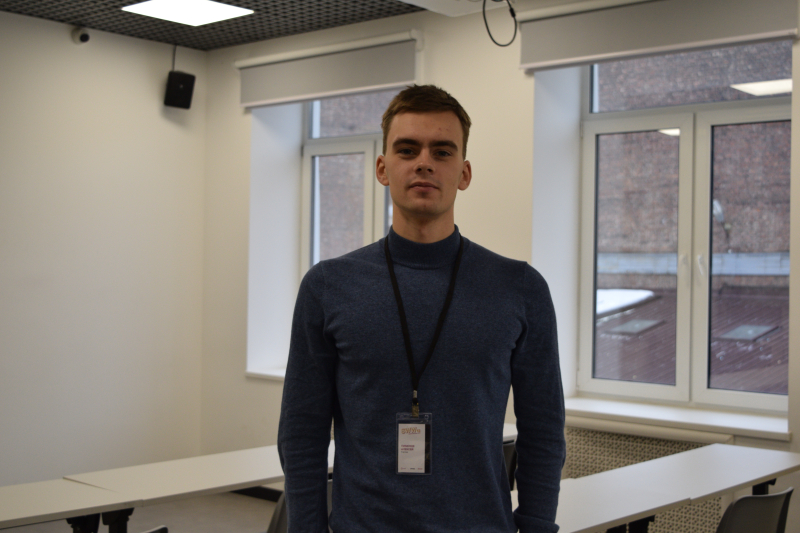
Alexey Pimenov. Photo by Yulia Nagovitsina / SCAMT Workshop Week
Project name: NoCorrosion: designing a project to counter microbiological corrosion
Olga Protozanova, a fourth-year chemistry student at Siberian Federal University
I really enjoyed working at SCAMT’s laboratories and getting to learn the perspectives of experts in different fields. That’s why I benefited from the industrial track: at my university, I learn to develop fundamental knowledge and at the workshop, I get to apply this knowledge. In our project at SWW, we studied the problem of microbiological corrosion in the oil industry: we analyzed the existing solutions, developed our own approach, and formed a business proposition. This project is meant to minimize the risk of oil spills caused by corrosion on extraction sites. I am about to graduate university and I am considering ITMO as one of the options for my further studies.
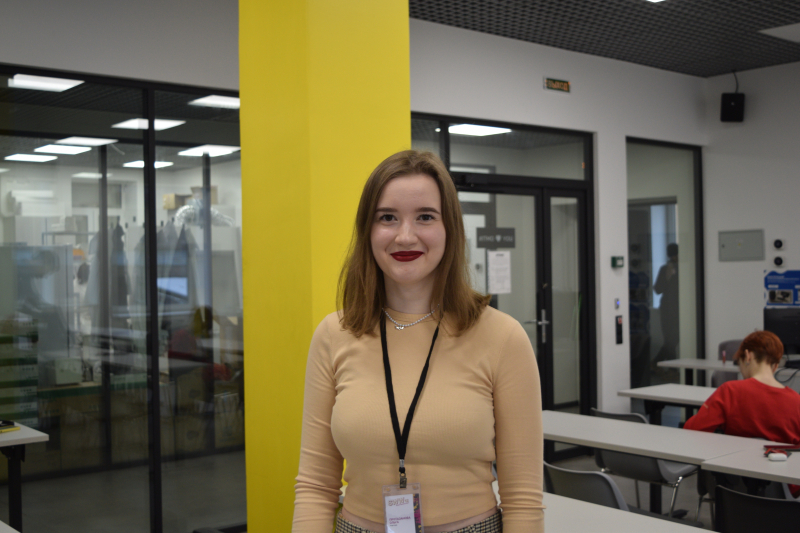
Olga Protozanova. Photo by Yulia Nagovitsina / SCAMT Workshop Week
Project name: There is always a way out: predicting yields of organic reactions
Olga Konovalova, a fourth-year chemical technology student of Ural Federal University
I am an organic chemist and I used to study machine learning, so I chose the digital track. In our project, we predicted the yield of organic reactions using machine learning. For this purpose, we train computer models on a database of these processes: we put in reagents, product, and conditions, and receive the reaction’s yield as a percentage (the ratio of the acquired product mass to the theoretical one) as the outcome. The results of this project could be applied in the pharmaceutical industry, reducing the number of experiments needed to produce a treatment: in this process, it’s not only important to determine a molecule’s biological activity, but also the economic benefit of its synthesis. If we train the model to produce high-precision results, we will describe it in a research publication. I am interested in the topic of machine learning applications in chemistry, so I am planning to continue working in this field.
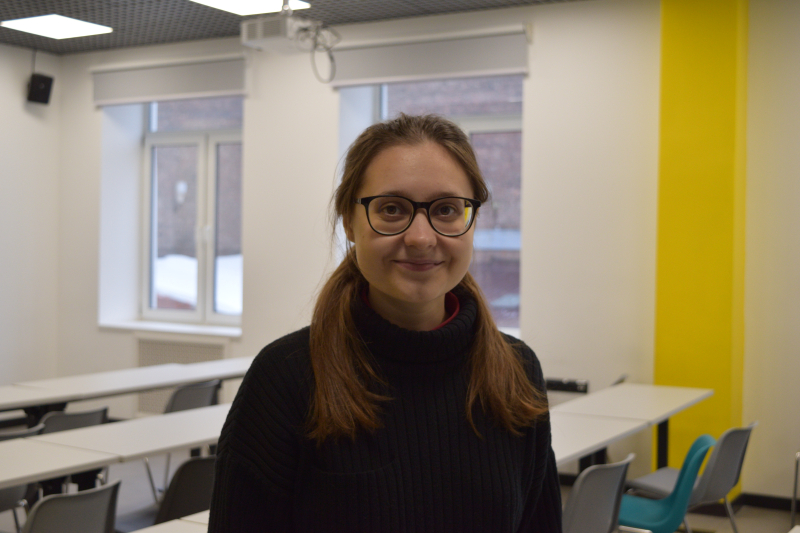
Olga Konovalova. Photo by Yulia Nagovitsina / SCAMT Workshop Week
2024 will be the last year that SCAMT Workshop Week is held in its traditional format. According to the organizers, the workshop will be reimagined in response to the current challenges in science and education. Moreover, the project has already been “exported” to other regions of the country – the SCAMT Workshop Week: School Edition held in Omsk in 2023 and the AGNI Workshop Week delivered by researchers from ITMO’s Advanced Engineering School in Almetyevsk. That’s why the minds behind SWW want to create something new.
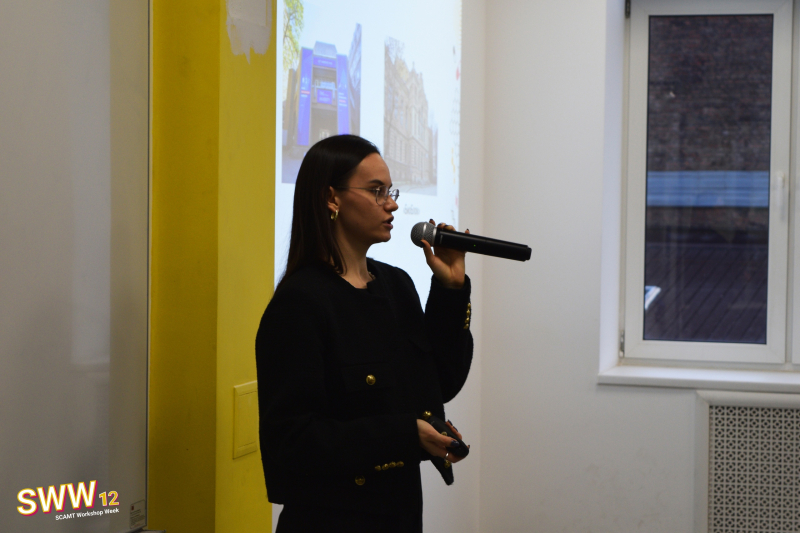
Photo by SCAMT Workshop Week / vk.com/scamt
“In the future, we want to look for a new format of the event that might be better tailored towards senior Bachelor’s students applying for Master’s programs. From a week-long workshop, SWW will turn into an intensive course with a high concentration of useful information delivered over a shorter period of time,” shared Yulia Nagovitsina, the chief organizer of the workshop and a manager for development at SCAMT.
